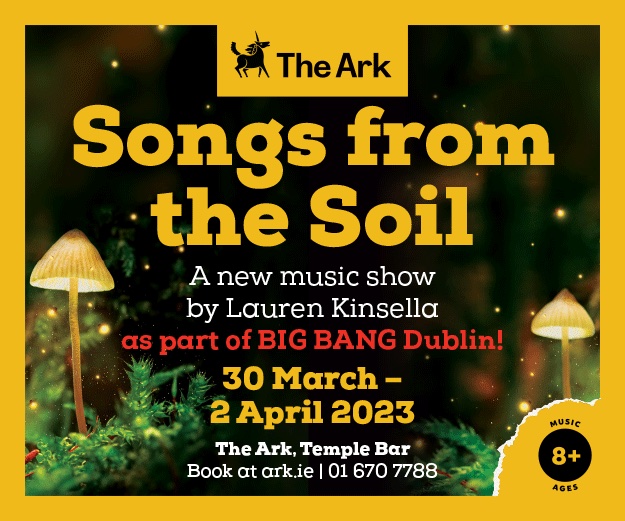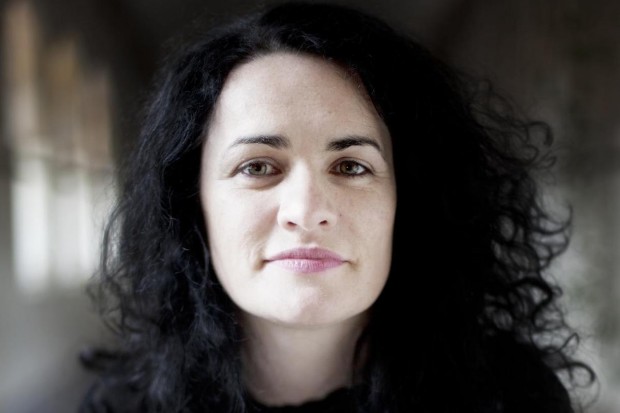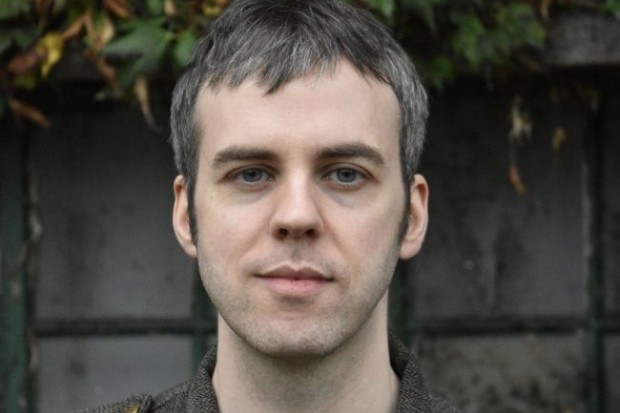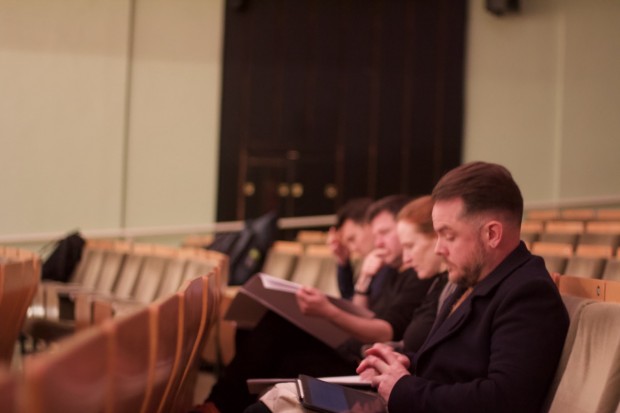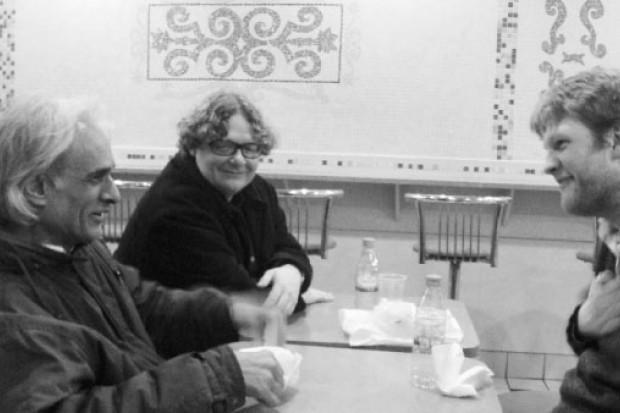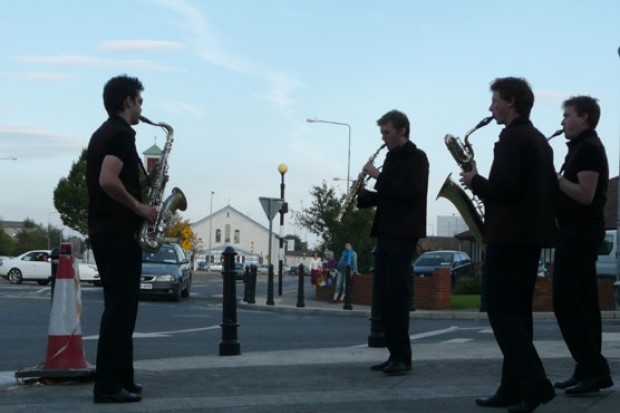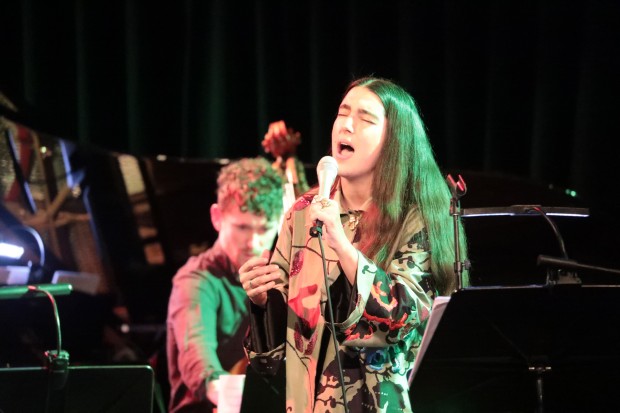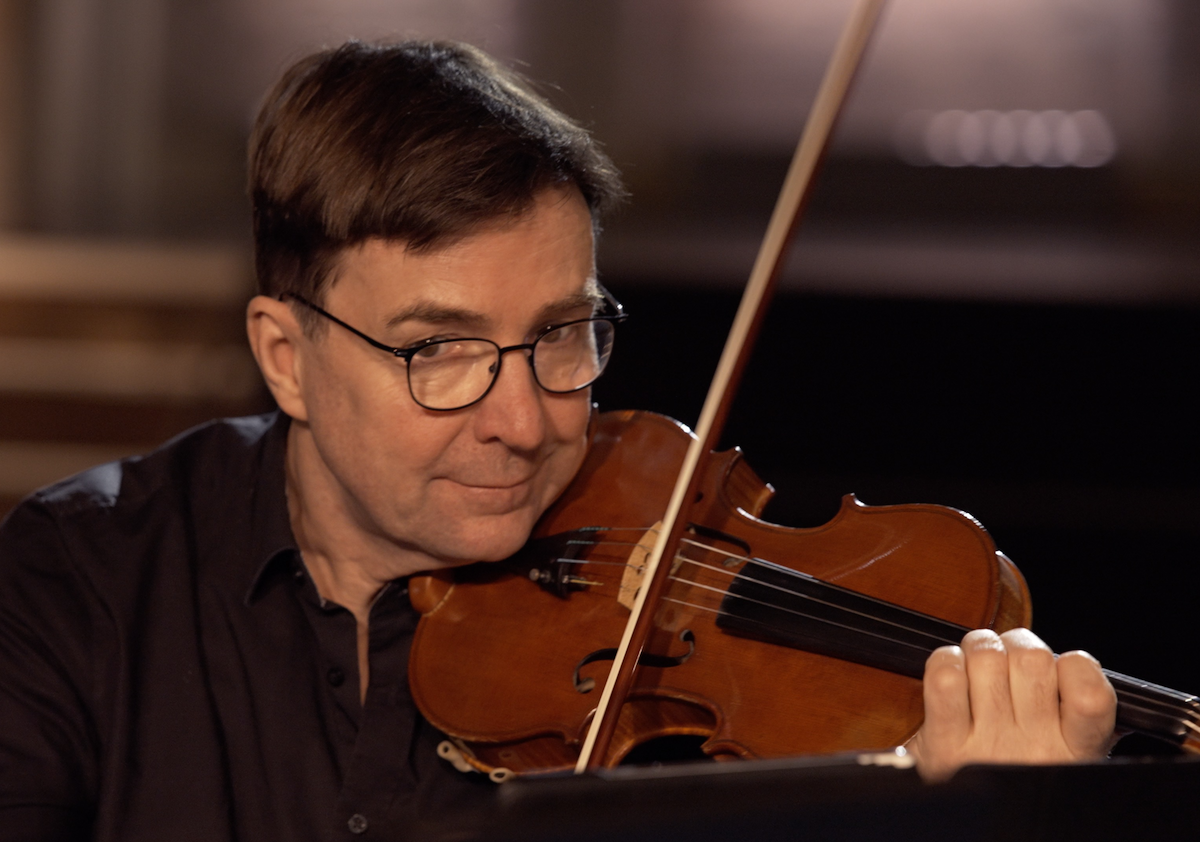
Frank Reinecke from the Vogler Quartet performing as part of the 2021 Sligo International Chamber Music Festival.
A European Tour Under Lockdown
The Sligo International Chamber Music Festival would have been in its fifteenth year in 2020, but of course Covid put paid to that. There was always a worry that the momentum it thereby lost would prove fatal, especially as it is a regional festival. Given this backdrop, it is great to see it return this year, even if, thanks to continuing Covid restrictions, it returns in a purely online format and with a reduced programme.
The festival this year comprised four short live concert films, in which the pre-recorded performances were interspersed with interviews with the musicians. Some of these intermissions were quite involved: the first concert, by the artistic directors and quartet-in-residence of the festival, the Vogler Quartet, had a short film of the group reminiscing about their school days in an East Berlin conservatory while walking through its grounds. This was engaging, and made the concert as a whole ‘special’, which of course was the unenviable challenge faced by festival director Caroline Wynne, who has to programme an online festival when YouTube has films of all but the most esoteric music. It didn’t hurt either that the Voglers’ concert, of a Dvořák waltz (Op. 54/1) and Beethoven’s Op. 18/4, was phenomenal: they played with all the warmth, energy and synergy you would expect from a world-class quartet still comprised of its founding members after thirty-five years.
Despite the relatively slender programme this year, in one way the festival’s ambitions actually grew: it commissioned three short works by Irish composers that were given their premieres in the second concert, ‘The Contemporary Hour’, interspersed with interviews between the composers and Evonne Ferguson, the director of the Contemporary Music Centre. Each of these works, appropriately given the times, was written for a solo instrument.
The first, Benedict Schlepper-Connolly’s After, was written for Fionnuala Moynihan’s solo piano. This piece, as Schlepper-Connolly said in his interview, is very much a Covid work, and it sounded it: it was built around mellifluous melodic fragments that were constantly yanked back as soon as they built any momentum. It was frustratingly static, and so very effective.
Following on this was Deirdre Gribbin’s Maps of Awakening for double bass. This was again a lockdown work – Gribbin talked at length in her interview about how maps seem different to us during lockdown – but I confess I failed to hear any of this in the music. What I did hear, though, was a subtle and pleasant piece, written with a fine sense of the particular sound of the double bass, and played expertly by Malachy Robinson.
The final piece in this concert was Judith Ring’s Across the empty squares, for accordion and tape (performed by Dermot Dunne). This is not the first time Ring has written for accordion, or even for Dunne’s accordion, having written …within an egg of space… for Concorde back in 2009. Across the empty squares is a more atmospheric piece, the tape bolstering the already rich sound of the live accordion with pre-recorded accordion to create an effect of a huge dark storm-cloud – it was quite arresting, and one of the highlights of the festival.
Windswept movements
The third concert was really two shorter concerts. In the first half Moynihan returned, this time to play a selection from Tchaikovsky’s Seasons and Rhona Clarke’s Tread Softly (2005), in which latter she found subtleties of texture with wonderful delicacy and warmth. The second half was a barnstormer by Jonian Ilias Kadesha (violin) and Vashti Hunter (cello). I was a bit puzzled by their decision to play only excerpted movements (from Kodály’s Op. 7 and Skalkottas’ Duo for Violin and Cello), and in particular, leaving out the slow movements of these works left this listener feeling a bit windswept by the end; but the vigour and expansiveness with which Kadesha and Hunter performed was well worth my having to take out my comb.
The final concert featured the largest ensemble of the festival: a quartet of Dunne, Robinson, Nick Roth (saxophone), and Mia Cooper (violin) playing Dunne’s arrangements of Mussorgsky’s Pictures at an Exhibition and Kodály’s Dances of Galánta. The Mussorgsky arrangement, unfortunately, was a failure: that work is far too textural for the melody-focused instruments of this quartet. In particular, the huge registral gap above the double bass created a lopsided acoustic profile, and ‘The Bogatyr Gate’ finale ran out of dynamic headroom far too early, so for the last minute or so the instruments were just blasting away fortissimo without anywhere to go. This said, there were some moments of great charm, especially the ‘Ballet of Unhatched Chicks’ and ‘Limoges.’
The Kodály was more successful: Kodály wrote Dances of Galánta under the influence of Slovakian folk music that would, as Dunne noted in his pre-concert talk, have been performed by bands not so dissimilar to this concert’s quartet. The arrangement brought this out well and had some nice imaginative touches too (as when it briefly swapped the melody to the accordion and accompaniment to the violin), and did a surprisingly good job of arranging for a small chamber ensemble what is a very coloristic orchestral piece. Also, despite the performance occasionally seeming a little under-rehearsed – which it probably was and had to be, thanks to lockdown – it had a great galloping energy.
A word must be given, by the way, to the recording engineers for all these concerts. The Vogler concert was held in the Delphi Theatre in Berlin, and the rest were held in the Shaw Room of the National Gallery. These are not forgiving acoustics even when full, let alone lockdown-empty. But the sound was fantastic throughout.
It was no doubt inevitable that this year’s Sligo International Chamber Music Festival was a small one, and no doubt there were compelling practical reasons why so many of the performances were of partial works, and why the commissioned works were all so short. However, in maintaining the high standard of performance while programming and indeed commissioning contemporary music, the festival has, despite all, found a way not only to expand its own ambitions, but also to both compete against the surfeit of online music and give composers a larger stage. That is some achievement – providing high-quality video recordings of contemporary Irish music, in particular, is something we sorely need more of – and so I hope this year’s ambitions will be matched when things return to normal for the next festival.
Published on 13 May 2021
James Camien McGuiggan studied music in Maynooth University and has a PhD in the philosophy of art from the University of Southampton. He is currently an independent scholar.










